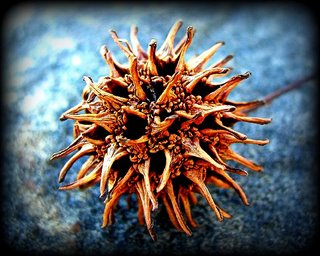this little wild bouquet
still holding up this little wild bouquet-
Saturday 14 February 2009Phase of the Moon on 14 February:
Central Standard Time
SUN
Begin civil twilight 6:12 a.m.
Sunrise 6:36 a.m.
Sun transit 12:11 p.m.
Sunset 5:46 p.m.
End civil twilight 6:10 p.m.
MOON
Moonrise on preceding day 10:14 p.m.
Moon transit 3:52 a.m.
Moonset 9:24 a.m.
Moonrise 11:14 p.m.
Moonset on following day 10:00 a.m.


"Intention is the most important of all mental events because it gives direction to the mind, determining whether we engage with virtuous, non-virtuous, or neutral objects. Just as iron is powerlessly drawn to a magnet, our minds are powerlessly drawn to the object of our intentions.
An intention is a mental action; it may be expressed through either physical or verbal actions. Thus, action, or karma, is of two types: the action of intention and the intended action. The action of intention is the thought or impulse to engage in a physical or verbal act. The intended action is the physical or verbal expression of our intention. Karma actually refers to the action of intention but in general usage it includes the intended action and the seeds that are left in the mind as a result.
How do we accumulate karmic seeds? Every physical and verbal action is preceded by mental activity. Goodwill motivates a kind gesture; ill will motivates nasty words. Ill will is the intention to cause mental, emotional or physical harm. Thus, before and during a bad action, ill will is present in our mind. The presence of ill will before and during this act has an impact and influence on the mind due to which a certain potential is left behind. This potential is a karmic seed, a seed planted in our mind by physical, verbal or mental action. The strength or depth of this seed is determined by a number of factors, including how strong our intention is, whether we clearly understand what we are doing, whether we act on our intention and whether the physical and verbal action is completed.
Seeds will remain in the mind until they ripen or are destroyed. Seeds left by negative mental events and actions can be destroyed by the four opponent or antidotal powers. The most important of these four powers are regret for the negative act and a firm resolve not to act that way again in the future. Seeds left by positive mental events and actions can be destroyed by anger.
Even if we do not act on a negative intention, a karmic seed of diminished potency is still left in the mind. This incompleted seed is easier to remove. If it is not destroyed, a negative seed will eventually produce an unpleasant and negative effect while a postive seed will produce a pleasant and positive effect. Karmic seeds do not go to waste even after one hundred aeons. They will come to fruition when the time comes and the conditions assemble.
Actions motivated by the wish to attain Buddhahood for the benefit of all sentient beings and dedicated to that end have a special feature. The positive effects of such an act will be experienced many times over without being exhausted. For this reason, virtue dedicated to complete enlightenment is likened to a magnificent tree that bears fruit every season without fail. Such virtues will bear fruit until Buddhahood is attained."
Labels: seed, seeding behavior, transformation
Labels: connecting, death, dispersal, love, memory, night, transformation
After tiring of the feuding monks of Kosambi, the Buddha left to spend a year in the forest with no monks or lay people in attendance, The elephant known as Palilayaka cleared a path to a hidden cave and brought him fresh fruits every day. A monkey also attended the Buddha, bringing him his most valued posession, a honeycomb.
When Buddha departed to return to Kosambi, Palilayaka attempted to follow him into the forest. The Buddha warned him, "From here on is the territory of men and a great danger to animals such as you." Palilayaka stood and roared with grief. As soon as the Buddha was out of sight, his heart broke and he died right where he stood.
-